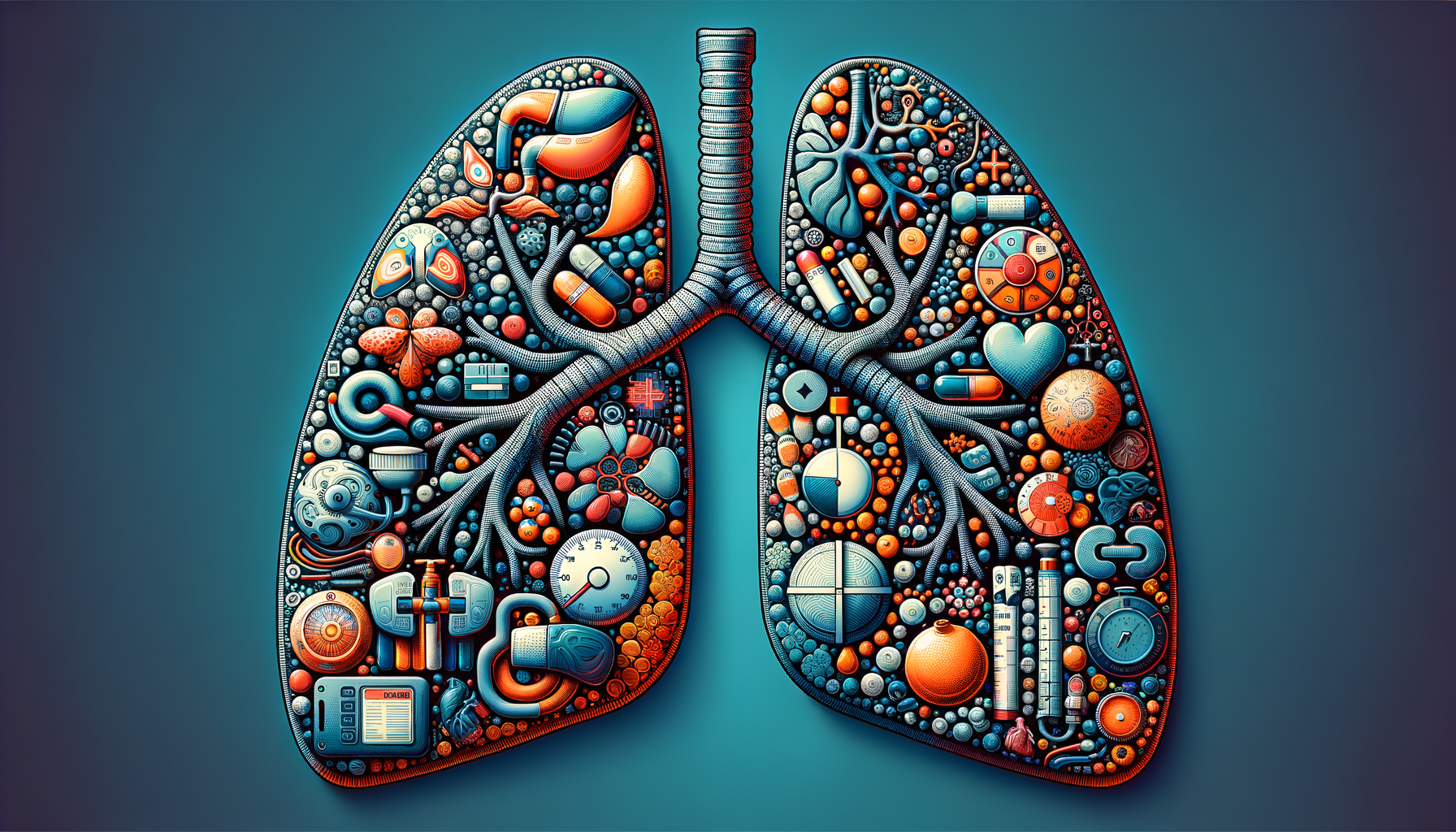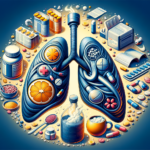Understanding COPD and Its Impact
Chronic Obstructive Pulmonary Disease (COPD) is a progressive lung condition characterized by obstructed airflow from the lungs. It typically includes emphysema and chronic bronchitis, leading to symptoms like breathing difficulty, cough, mucus production, and wheezing. The disease significantly impacts daily life, limiting physical activity and reducing quality of life. COPD is often caused by long-term exposure to irritating gases or particulate matter, most commonly from cigarette smoke. Understanding the nature of COPD is crucial for effective management and treatment.
People living with COPD experience a gradual decline in lung function, which can be measured through spirometry tests. These tests help assess the severity of the condition and guide treatment options. Early diagnosis and intervention are key to slowing disease progression. COPD management is not only about medication but also involves lifestyle changes and regular monitoring to improve overall health.
Effective management of COPD requires a comprehensive approach. This includes medication, pulmonary rehabilitation, lifestyle changes, and regular doctor visits. Patients need to work closely with healthcare providers to tailor a treatment plan that suits their specific needs. Understanding the disease’s impact on the body and adopting a proactive management strategy can help maintain a better quality of life.
Medication and Inhaler Use
Medications play a central role in managing COPD and alleviating symptoms. Bronchodilators are commonly prescribed to relax the muscles around the airways, making breathing easier. These medications can be short-acting, providing quick relief, or long-acting, offering extended control of symptoms. Inhaled corticosteroids may also be used to reduce inflammation in the airways.
Proper inhaler technique is crucial for medication effectiveness. Patients should receive training on how to use inhalers correctly to ensure that the medication reaches the lungs. Common mistakes include not shaking the inhaler, incorrect positioning, and failing to hold the breath after inhalation. Regular review of inhaler technique with a healthcare provider can help optimize treatment outcomes.
In addition to inhalers, some patients may require additional medications such as phosphodiesterase-4 inhibitors or combination inhalers. These medications are tailored to the individual’s specific needs and are often adjusted based on symptom control and lung function tests. Adherence to prescribed medication regimens is essential for managing COPD effectively.
The Role of Pulmonary Rehabilitation
Pulmonary rehabilitation is a comprehensive program designed to improve the physical and emotional well-being of individuals with COPD. It combines exercise training, nutritional advice, education, and psychological support. The primary goal is to enhance the quality of life by increasing physical activity levels and reducing symptoms.
Exercise is a vital component of pulmonary rehabilitation, helping to improve cardiovascular fitness, muscle strength, and endurance. Patients learn breathing techniques to manage breathlessness and conserve energy during daily activities. These exercises are tailored to the individual’s capabilities and gradually increased in intensity.
Nutritional counseling is also an integral part of pulmonary rehabilitation. Maintaining a healthy weight is important, as being underweight or overweight can exacerbate symptoms. A balanced diet rich in vitamins and minerals supports lung function and overall health. Education sessions provide valuable information about the disease, treatment options, and self-management strategies.
Lifestyle Adjustments for Better Management
Making lifestyle adjustments is crucial for managing COPD effectively. Smoking cessation is the most significant change individuals can make to slow disease progression. Quitting smoking can improve lung function and reduce symptoms, even in advanced stages of COPD. Support from healthcare providers, counseling, and nicotine replacement therapies can aid in smoking cessation efforts.
Environmental factors also play a role in COPD management. Avoiding exposure to pollutants, dust, and chemical fumes can prevent exacerbations. Ensuring good indoor air quality by using air purifiers and maintaining proper ventilation is beneficial. Patients should also be cautious during outdoor activities, especially on days with poor air quality.
Stress management and mental health support are essential components of COPD management. Chronic illness can lead to anxiety and depression, impacting overall well-being. Engaging in relaxation techniques, such as meditation or gentle yoga, can help reduce stress levels. Seeking support from mental health professionals or joining support groups can provide emotional relief and a sense of community.
Daily Habits to Support Lung Health
Incorporating specific daily habits can aid in managing COPD and supporting lung health. Staying active within one’s limits is important for maintaining physical fitness and preventing muscle weakness. Simple activities like walking or stretching can make a positive difference in lung capacity and overall health.
Hydration is another key factor, as it helps thin mucus, making it easier to clear from the airways. Drinking plenty of water throughout the day can aid in mucus management and improve breathing. Additionally, a diet rich in antioxidants and anti-inflammatory foods, such as fruits and vegetables, can support lung health.
Regular monitoring of symptoms and lung function is crucial for early detection of exacerbations. Patients should keep a symptom diary and report any changes to their healthcare provider promptly. Routine check-ups and lung function tests help track disease progression and adjust treatment plans as needed. By adopting these daily habits, individuals with COPD can take proactive steps to manage their condition and enhance their quality of life.








